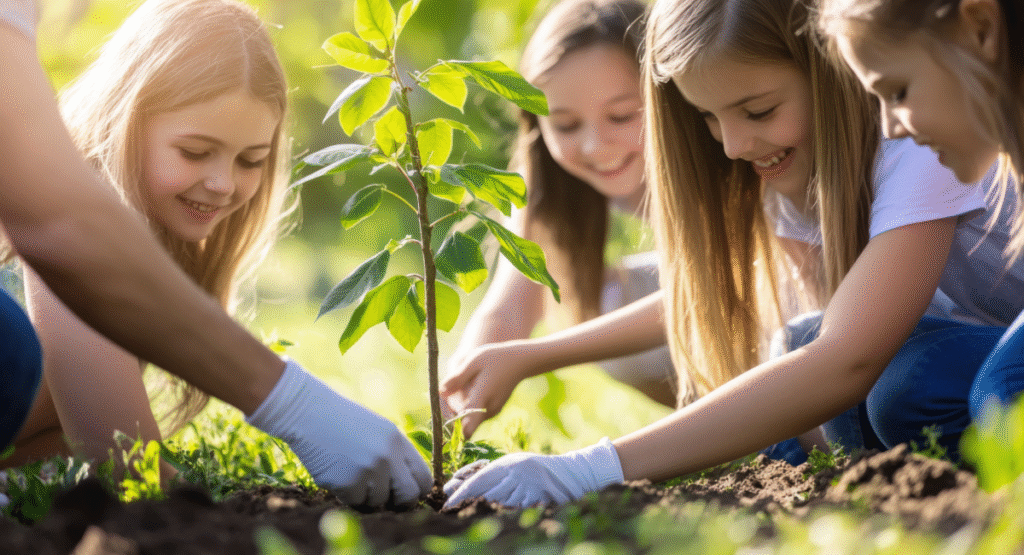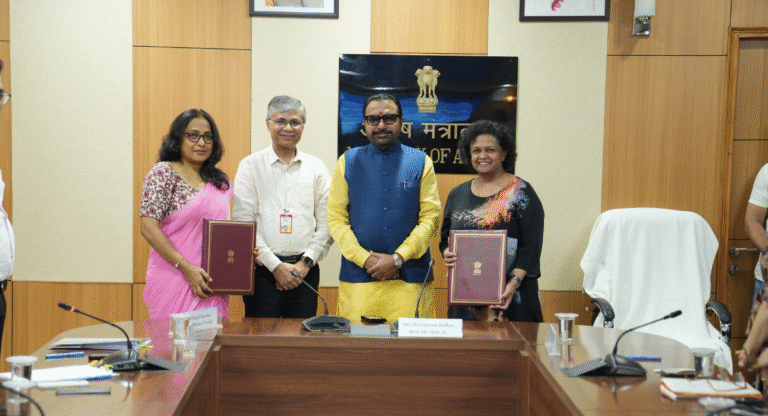
A moment of reflection: what the KBC conversation teaches us about mindful parenting
Introduction: When KBC Sparked a Thoughtful Conversation
A recent episode of Kaun Banega Crorepati (KBC) went viral — not for its quiz questions, but for a young contestant’s confident responses to Amitabh Bachchan. While some praised the child’s self-assurance, others felt it bordered on overconfidence. But instead of judging, this moment gives us an opportunity to reflect on modern child behaviour — how children today express emotions, and how parents and grandparents can support them in a balanced way. From a holistic view, this discussion goes beyond TV — it’s about understanding the changing emotional landscape of today’s generation.
Understanding the Shift in Child Behaviour — Not Right or Wrong, Just Different
Children today grow up in an environment of open communication, global exposure, and instant access to information. Their confidence and curiosity reflect a fast-evolving world.
However, psychologists and Ayurveda both remind us that balance is key. When children receive constant stimulation — from gadgets, rewards, or attention — their manas (mind) can become restless, affecting patience and empathy. This doesn’t make their behaviour wrong — it simply calls for more grounding and mindfulness in their environment.
The Six-Pocket Syndrome and Emotional Overload

The term six-pocket syndrome describes children who are loved and pampered by multiple caregivers — parents and grandparents — often fulfilling every wish instantly. Ayurveda says such an environment, though affectionate, can increase rajas (hyperactivity) leading to emotional fluctuations.
Instead of curbing love, Ayurveda suggests creating emotional rhythm — balancing affection with routine, gratitude, and self-regulation. This helps the child develop confidence with calmness.
Ayurvedic Insight: Balancing the Three Gunas in Growing Minds
According to Ayurveda, every mind has three qualities —
- Sattva (clarity, calmness)
- Rajas (energy, action)
- Tamas (stability, rest)
Healthy child behaviour reflects sattva dominance — a blend of curiosity, kindness, and respect. Too much screen time, sugar, or overstimulation can increase rajas, making children impatient or reactive. Simple habits like early sleep, sattvic diet (fresh fruits, ghee, nuts), outdoor play, and pranayama can help maintain balance.
How Parents Can Nurture Balanced Behaviour — The Ayurvedic Way

- Mindful Praise: Appreciate effort, not just achievement. It cultivates humility and steady self-esteem.
- Sattvic Diet: Include warm milk with turmeric, seasonal fruits, ghee, nuts, and vegetables. Avoid processed snacks and excess sugar, as they can increase restlessness.
- Family Connection: Shared meals and storytelling strengthen emotional bonds — a modern solution to the “six-pocket” pattern.
- Grounding Activities: Encourage gardening, painting, or yoga to calm an overactive mind.
- Digital Discipline: Ayurveda values mental digestion (manasik agni) — too much content overloads the mind. Schedule screen breaks and quiet playtime.
KBC Child Behaviour Debate — A Reflection, Not a Blame
The KBC moment is not about judging a child or parents. It’s about recognizing that each generation expresses emotions differently. Confidence, curiosity, and outspokenness are strengths when guided with empathy and mindfulness.
Ayurveda teaches us that every child has a unique prakriti (nature). Some are naturally more expressive (pitta-dominant), others calm and thoughtful (kapha-dominant). Understanding this helps parents respond with compassion instead of comparison.
Also Read- Fasting During Pregnancy: How It Affects You and Your Baby’s Health
Conclusion: Raising Emotionally Resilient Children in a Changing World
The KBC child behaviour discussion reminds us that children mirror the energy around them. As families, we can create an environment where love, routine, and mindfulness coexist.
Ayurveda offers timeless wisdom — teaching us that balanced emotions and sattvic living lead to not just intelligent children, but empathetic and self-aware future adults.
Let’s shift the focus from “What went wrong?” to “How can we nurture balance?” — because every confident child, when guided with care, can grow into a compassionate soul.












